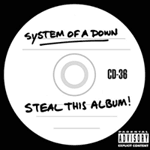
Is the Authors Guild the New RIAA?
When Amazon unveiled the Kindle 2, the Authors Guild immediately raised the alarm that the device’s text-to-speech feature violated authors’ rights. The feature allows the Kindle 2 to read text back to the user in the sort of jangly quasi-robotic voice familiar to those who have employed similar computer programs. (For some sample audio of text-to-speech in action, check out this video of a Kindle 2 demonstration.)

Some defenders of the Kindle 2—or simply those bothered by the Authors Guild’s seemingly knee-jerk opposition to the device—have accused the Guild of being a new Recording Industry Association of America (RIAA), oblivious to the potentials of new technology and instead threatening lawsuits when compromise, adaptation, and creative thinking would be more appropriate. The president of the National Federation of the Blind accused the Authors Guild of being insensitive, since the text-to-speech function may be useful to the blind, who are limited by the selection of available audiobooks. Tech-savvy writers like Cory Doctorow, a science fiction author and part of the Boing Boing team, have railed against the Authors Guild’s position for these reasons and more.
Certainly the Guild has a right to protect its constituents and their livelihoods. And if the organization has overreached in the past—for example, by lobbying against various measures aimed at digitizing books and making them more accessible in internet search results—I think that here they stand on firmer ground; even if the feature in question is rather crude, it may in fact allow users to violate civil law. Amazon seems to agree with the Guild, or they may fear that their immensely popular new product will become tinged with controversy and the acrid odor of litigation. On March 2, the internet behemoth released a statement that opens by plainly stating that “Kindle 2’s experimental text-to-speech feature is legal: no copy is made, no derivative work is created, and no performance is being given.” The company also argues that it is heavily invested in audiobooks (via the companies Brilliance and Audible) and feel that the Kindle 2 will help to grow the business. But they go on to announce that they “strongly believe many rightsholders will be more comfortable with the text-to-speech feature if they are in the driver’s seat. Therefore, we are modifying our systems so that rightsholders can decide on a title by title basis whether they want text-to-speech enabled or disabled for any particular title.” With that concession, the Authors Guild has won—for now.
Personally, I share Cory Doctorow’s concern, if not his righteous indignation, that the Guild, by its track record, is in danger of becoming the kind of antiquated, maligned, excessively litigious beast that the RIAA is now. Among the many lessons of the collapse of the music industry is that the big labels, in cooperation with the RIAA, chose to resist file-sharing and other new methods of distribution—and to prosecute high school-aged pirates—rather than to find out how they could use digital music to their advantage. CD prices remained absurdly high, and naturally, many consumers fled in the direction of free, if illegal, content. Tower Records, Wherehouse Music, and most other traditional music retailers are gone or have shrunk their CD-display space considerably.
Even now, with the ubiquity of MP3 players and the ease of use and lower costs of iTunes, the industry has no chance to regain its old prominence. Most bands today are better off promoting their music on MySpace and blogs and releasing albums directly via iTunes instead of trying to be signed by a major label. That way, they aren’t beholden to corporate executives, get to pocket more cash, connect easier with fans, have complete artistic freedom, and control their methods of distribution.

Do we want the publishing industry to become just as fragmented, moribund, and riven with internecine conflicts? Print-on-demand, eBooks, Kindle 2, and other new technologies don’t have to signal the collapse of the industry. They can be, to recklessly paraphrase Faulkner, some of the pillars that prop up publishing in difficult times. They can allow books, especially those niche titles printed in small quantities, to find the interested readers that are surely out there. (Foregoing exorbitant advances for unpublished and celebrity authors and publishing some new titles only in paperback would also help.) Experiments with digital book distribution, including giving away a limited number of free copies in PDF form, have already brought authors much needed exposure and allowed consumers to sample the material before they buy it.
So, Authors Guild, take note: text-to-speech technology is already here, better text-to-speech features are in the offing, and you and those writers you represent would be best served to embrace these dynamic, exciting developments. Find creative ways to work with Amazon and other technology purveyors to make these new products work with and for you. Let’s learn from the failures of the music industry and continue down the path that many publishers and writers are now pursuing: making books as accessible as possible, in any number of formats and at a cost low enough to keep customers happy and committed.
